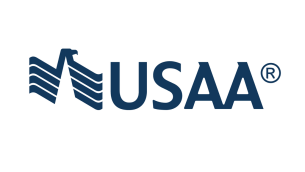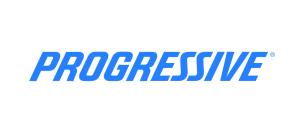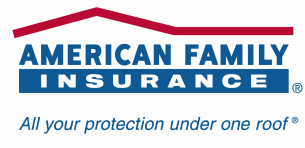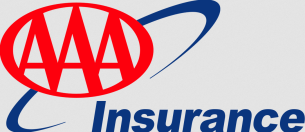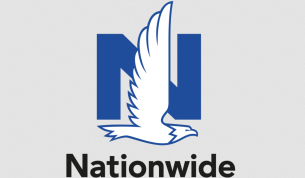Shopping for car insurance can feel daunting, especially with so many options available. But understanding the importance of getting multiple car insurance quotes is essential for making smart financial decisions. A good policy doesn’t just protect your vehicle; it safeguards your peace of mind on the road. With the right coverage, you can drive confidently, knowing that you're prepared for the unexpected.
Effective comparison is the key to securing the best rates. Every insurer evaluates risk differently, which means two companies might quote you completely different prices for similar coverage. By taking the time to gather and compare quotes from several providers, you increase your chances of finding a deal that fits both your needs and your budget. Ready to dive into some tried-and-true tips? Let’s explore how you can navigate this process smoothly and efficiently!
Know Your Coverage Needs
Understanding your specific coverage needs is a critical first step in obtaining the best car insurance quotes. Every driver is unique, with different driving habits and varying levels of risk; thus, tailoring your insurance coverage to fit your lifestyle can help ensure you’re adequately protected while also potentially saving you money. For example, if you have a long daily commute or often drive in busy urban areas, you might be at a higher risk for accidents compared to someone who uses their vehicle primarily for weekend errands. Taking an honest assessment of your driving patterns helps guide the amount and type of coverage that's right for you.
In addition to understanding personal driving risks, it’s essential to be aware of the minimum coverage required by your state law. Each state has its own legal requirements regarding auto insurance, which usually includes liability coverage that pays for damages to others involved in an accident where you're at fault. Some states may also require uninsured motorist coverage; this protects you when you're hit by someone without insurance or insufficient coverage. Familiarizing yourself with these requirements ensures that you're compliant and avoids costly fines associated with inadequate coverage.
Once you know what is mandatory, delve into optional coverages that may provide added protection relevant to your situation. For instance, if you own an expensive vehicle or one that's prone to theft, comprehensive coverage could be invaluable as it protects against non-collision-related incidents like theft or natural disasters. Alternatively, consider roadside assistance if you're frequently on long road trips—this additional service can save you from potential headaches should your car break down unexpectedly. Evaluating these optional coverages will allow you not only to find the most suitable policy but also create a safety net tailored specifically for your needs.
Shop Around for Quotes
When it comes to finding the best car insurance quotes, utilizing online tools and resources can make a world of difference. Websites like Insure.com or NerdWallet provide straightforward comparison features that allow you to input your information once and receive multiple quotes from various insurers. This way, you can see at a glance how much different companies are charging for similar coverage levels. To maximize this benefit, ensure that you enter consistent details, such as coverage amounts and deductible options, so you're comparing apples to apples.
Additionally, don't underestimate the value of reaching out directly to insurers. While online aggregators offer convenience, communicating with insurers can yield personalized offers that you might not find on typical comparison websites. Insurance agents can tailor their recommendations based on your driving history or special considerations, such as student discounts or low-mileage incentives. For example, if you've recently completed a defensive driving course, mentioning this during your call may lead to further price reductions that weren't captured in automated quotes.
Once you've gathered several estimates from both online resources and direct inquiries, it's important to systematically compare them side by side. Create a simple chart where you list each quote alongside key features like the coverage limits, exclusions, deductibles, and premium costs. This visual representation will help you quickly identify which policies offer better value for your specific needs. Remember that cheaper isn’t always better if it compromises essential protections—make sure to understand what's included and what isn't in each policy before making a decision.
Maintain a Good Driving Record
One of the most significant factors affecting your car insurance premiums is your driving record. Insurance companies reward safe drivers with lower rates, as they are statistically less likely to file claims. Conversely, if you have a history of accidents or traffic violations—such as speeding tickets or DUIs—you may find yourself paying considerably more for coverage. In fact, just one at-fault accident can raise your premium by 20% to 50%, which emphasizes the importance of maintaining a clean driving slate. For example, if Sarah involved herself in a minor fender-bender last year, she might see her insurance costs increase significantly this year compared to her safe-driving friends who haven’t had any incidents.
Moreover, avoiding both accidents and ticketing situations requires commitment and awareness on the road. Staying attentive while driving not only promotes your safety but also ensures that you remain eligible for discounts dressed down from an excellent driving history. It helps to familiarize yourself with local laws, stay within speed limits, and always abide by traffic signs. In addition, many states offer ‘safe driver’ recognition programs that could yield extra savings if you steer clear from penalties over time.
Taking proactive steps such as completing defensive driving courses can also be beneficial in lowering your premiums further. These courses often teach techniques for anticipating and reacting appropriately to potential hazards on the road, reflecting well on both your skills and responsibility as a driver. Insurers typically recognize these courses; successfully passing one can translate into additional discounts on your policy. For instance, John found that after taking an online defensive driving course offered through his state department of motor vehicles (DMV), he was able to reduce his premium rate by 10%. This not only improved his driving capabilities but also rewarded him financially—a win-win situation!
In summary, fostering a good driving record opens doors for substantial savings on car insurance premiums. By practicing safe habits behind the wheel and considering educational opportunities like defensive driving courses, you position yourself favorably within the eyes of insurers—all while ensuring safer roads for yourself and others.
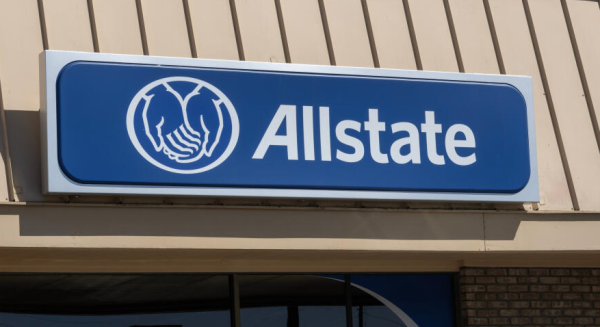
Consider Bundling Policies
One effective strategy to lower your car insurance premium is to consider bundling your auto policy with other types of insurance, such as home or renter's insurance. Many insurers offer substantial discounts for clients who hold multiple policies with them, which can lead to significant savings overall. For instance, if you need both auto and home insurance, you might find that by combining these policies under one provider, not only do you get a discount on the premiums but also simplify your payment process by having just one bill to manage each month.
Bundling is particularly beneficial for individuals living in rented accommodations. Renters’ insurance is often quite affordable but pairing it with your car insurance could qualify you for noteworthy discounts. For example, if you're paying $15 monthly for renter's coverage and are quoted a 10% discount on your auto policy due to bundling, the savings could effectively offset part of that cost while benefiting from additional peace of mind knowing all your belongings are protected too. Ultimately, this dual-layered approach gives comprehensive coverage without breaking the bank.
When considering whether to bundle policies or keep them standalone, it's essential to evaluate potential savings versus what each individual policy offers. While multi-policy discounts can be enticing, they shouldn’t come at the expense of sufficient coverage options or premiums that still leave room in your budget. A quick comparison tool online may help assess whether you'd achieve better value by keeping certain policies separate instead of joining them with a single insurer.
Before making any decisions regarding bundling your policies, it’s advisable to research various insurers and their offerings. Not all companies provide comparable discounts on bundled services; some might exceed others even when they seem competitive at face value. Taking the time now to consider how combining different types of coverage could positively impact not just your finances but also enhance convenience will ultimately pay off in terms of saving money in the long run while ensuring robust protection against unforeseen incidents.
Take Advantage of Discounts
When it comes to securing an affordable car insurance policy, taking advantage of discounts can lead to significant savings. Insurance providers offer a range of common discounts that you might not be aware of, which could lower your premium substantially. For example, many insurers provide discounts for good students—typically high school or college students with a GPA above a certain threshold. Additionally, if you have multiple vehicles covered under the same policy, you could qualify for a multi-car discount. Always ask your insurer about their available discounts; sometimes they have promotions that aren’t widely advertised.
Beyond standard discounts, consider inquiring about group affiliations or memberships that may unlock additional savings. Many organizations and associations negotiate special rates with insurance companies for their members. If you're part of a professional group, alumni association, or even certain credit unions, it's worthwhile to ask your insurer if these affiliations come with any perks. Moreover, some employers offer employee discounts on auto insurance as part of their benefits package—a potential savings opportunity often overlooked by employees.
Utilizing technology is another savvy way to maximize your insurance savings. Some insurers offer telematics programs where they track your driving habits via an app or device installed in your vehicle. These programs monitor factors such as speed, braking efficiency, and overall driving behavior. If you demonstrate safe driving patterns over time, you could receive substantial discounts on your premiums based on the data collected. For instance, those who frequently avoid hard braking or aggressive acceleration may find themselves rewarded with lower rates—an excellent incentive to practice safe driving.
By staying proactive about identifying possible discounts and leveraging technology created to promote safer driving habits, you'll make strides towards cutting costs while maintaining comprehensive coverage. Always remember: a little inquiry goes a long way when it comes to finding unique opportunities for lowering your car insurance expenses!
Review Your Credit Score
When it comes to securing the best car insurance quotes, many consumers may not realize that their credit history can play a significant role in determining rates. Insurance companies often use credit-based insurance scores to assess risk; individuals with better credit histories generally pay lower premiums. For instance, a driver with a high credit score is seen as more responsible and less likely to file claims, while those with lower scores might be viewed as higher risk, resulting in steeper rates. Therefore, understanding how your financial habits impact your insurance premiums is crucial for getting the best deal possible.
Before diving into the shopping process for insurance quotes, it’s prudent to take steps aimed at improving your credit score. Strategies include paying bills on time, reducing outstanding debts, and keeping old accounts active. For example, if you have an unpaid balance on a credit card that you rarely use, it might be advantageous to clear that debt and keep the account open; this can positively influence your overall credit utilization ratio and boost your score. Additionally, consider establishing consistent payment patterns by setting up automatic payments or reminders for bills so you're never late.
Another important aspect is regularly checking your credit report for any errors or inaccuracies that could artificially lower your score. Many consumers are unaware of discrepancies in their reports; something as simple as an incorrect address or outdated personal information can emerge during these checks. By utilizing free annual reports from major credit bureaus like Equifax, Experian, and TransUnion, you have the opportunity to identify potential issues before they affect your shopping experience for car insurance quotes. Should you discover mistakes on your report, taking prompt action to rectify them can significantly improve your chances of qualifying for more favorable premium rates.
Overall, reviewing and improving your credit score is not just about optimizing car insurance costs—it's also an ongoing practice that benefits various facets of financial health. By being proactive about understanding how these scores function within the insurance landscape and maintaining good financial habits over time, you pave the way toward more competitive quotes and enhanced savings when it’s time to hit the road.
Timing Your Purchase Wisely
When it comes to securing the best car insurance quotes, timing can be just as crucial as understanding your coverage needs. One ideal time to shop for car insurance is during certain months of the year when insurers often review their rates collectively. For instance, many drivers find that early spring is a favorable time to examine their options. Insurers frequently release new promotions or adjust their pricing structures at this point, making it an excellent opportunity for consumers to score competitive quotes. Additionally, knowing when most renewal periods occur—typically at the end or beginning of the month—can help you pinpoint when you should start comparing options.
Policy renewal times are key moments in your insurance journey. When your current policy nears its expiration date, take that chance to re-evaluate your situation and explore new quotes. Some insurers may offer loyalty discounts for long-term customers; however, they might not always provide the best rates available on the market. It’s wise to avoid auto-renewing without first shopping around because you could miss out on considerable savings with other providers or plans better suited to your changing needs.
Changes in life circumstances can also have a significant impact on how much you pay for car insurance. Events such as getting married, moving to a different area, or even purchasing a new vehicle can affect your risk profile in ways that might lower or increase your premiums substantially. For example, if you move from an urban setting with high traffic volumes and crash rates to a quieter suburban neighborhood, there's a good chance your premiums could decrease due to reduced exposure to potential accidents. Keeping these changes in mind alongside regular market checks makes for strategic shopping that could lead you toward more affordable options.
In summary, timing plays a vital role in finding the best car insurance quotes available. By being mindful of seasonal trends, carefully evaluating policy renewals, and staying alert for significant life events that could affect your premium costs, you'll be well-equipped to secure the most favorable deals tailored for you. Remembering these factors will help enhance your overall experience as you navigate the often complex landscape of car insurance shopping.
Evaluate Customer Service Reputation
When selecting a car insurance provider, it’s crucial to assess their customer service reputation. Start by researching reviews and ratings from current customers across various platforms, such as online review sites or social media outlets. For instance, you might come across a trending thread on an auto enthusiast's forum where users share their experiences with claims processing. Positive comments about quick responses and professional agents can indicate a reliable insurer, while negative feedback regarding long wait times or poor communication might serve as red flags.
The responsiveness of an insurance company during critical moments—like when a claim is filed after an accident—can significantly impact your overall satisfaction. Imagine being stranded after a fender bender; having an insurer that promptly addresses your situation not only eases stress but also builds trust in their service. It's wise to look for companies that emphasize efficient claims handling processes, as this will ensure you're supported whenever you find yourself in need of assistance.
Additionally, checking the financial stability ratings of potential insurers through reputable sources like A.M. Best or Moody's can give you peace of mind about their ability to pay out claims reliably. These organizations evaluate the strength and reliability of insurance companies based on numerous factors including their financial practices and market risks. Choosing a insurer with strong financial backing can prevent future headaches if your policy ever requires them to make substantial payouts.
Ultimately, investing time into evaluating customer service reputation isn't just about finding cheap car insurance quotes; it's about ensuring you'll receive quality support when it matters most. By putting considerable thought into these factors ahead of time, you're likely to save yourself from frustration on the road ahead—and secure the best possible coverage for your needs!
Final Thoughts on Securing Your Best Car Insurance
In conclusion, obtaining the best car insurance quotes requires a mix of strategy and diligence. We've explored essential tips, such as knowing your coverage needs, shopping around for competitive quotes, maintaining a good driving record, and taking advantage of available discounts. Each of these steps can play a significant role in securing not just the lowest rates but also the best coverage for your specific needs.
It's important to remember that your circumstances may change over time. Therefore, regularly evaluating your insurance needs and periodically checking the market will help you stay informed about potential savings. By taking a proactive approach to shopping for car insurance, you’ll make well-informed decisions that could save you money while ensuring peace of mind on the road.


